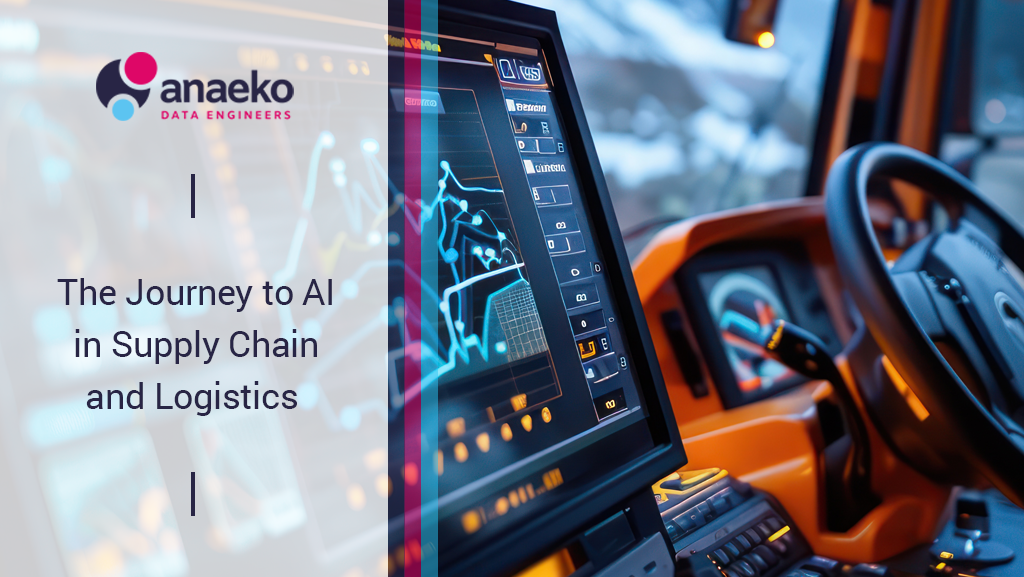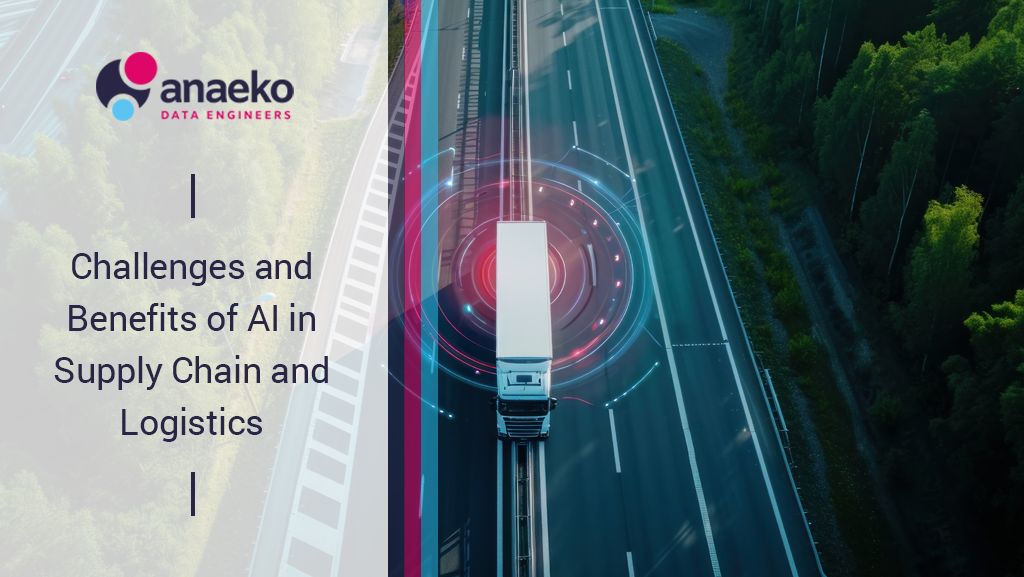Catch up on the second part of our latest AI and Data Transformation for Supply Chain and Logistics webinar where we had guest speaker Kieran Kelly from ubloquity speak around how AI and BlockChain are creating a frictionless path for your goods across the supply chain. He took us on a digital journey of goods from a single trusted source of truth.
Welcome guest Speaker Kieran Kelly, Founder, ubloquity
An example of what success looks like can be seen in the problem we are addressing: the movement of goods from Great Britain to Northern Ireland under the Brexit arrangement called the Windsor Framework. The challenges people faced in getting products across the border are significant.
We know that our logistics sector is the lifeblood of our economy because goods either move on water or on wheels. Without this sector, everything grinds to a halt. The barriers and friction introduced into the sector are causing major problems. Therefore, we aim to move goods frictionlessly using blockchain IoT, and AI technology.
We start by collecting data from all areas of the supply chain. For the logistics sector, this includes data from Transportation Management Systems (TMS) and the trailers themselves. More recently, we have been using digital seals on the trailers. These seals remove single-use plastics from the industry and create efficiency savings. They include real-time GPS, electronic accelerometers, decelerometers, and altimeters, making them multifunctional. They have a five-year lifespan and up to seven weeks of battery life, allowing them to operate independently on the back of a trailer or container without needing to integrate directly with the TMS.
This innovative approach has significantly improved the efficiency and effectiveness of the logistics sector, demonstrating the potential of technology to overcome complex challenges.
ubloquity Use Case
Here's an example of success through a connected community established on the blockchain. We have a generic map and profile for a company in Northern Ireland sending products across the landbridge and into the EU. By picking a single consignment, we can see all the data in real time, from the consignor to the consignee.

The haulier we worked with in this instance operates like a Formula 1 team, being very data-driven. They collect data on fuel usage and performance analytics to offer a value-added service to their customers. This approach has allowed them to grow exponentially while reducing costs.
By subscribing to this service, which is entirely data-driven, companies can collate data from multiple systems and bring it into a single trade window. When a customer loads the trailer at the source, a digital seal is placed on it, marking the start of the journey. As soon as the trailer breaks the geofence, it informs the port and the ship that it is en route. This eliminates the need for numerous phone calls asking, "Are you there yet?" and provides the ship with an estimated time of arrival (ETA) and actual time of arrival (ATA).
The consignment goes through a "green lane" at the port because the journey and customs information has been shared in advance, including details of the consignor, consignee, port of exit, and port of entry. A process, known as smart customs, integrates all data through a single trade window. As the trailer approaches the port in Belfast, it also notifies the inbound port with all consignment details, informing the regulatory authorities and local port authorities. If there are SPS-related goods or special goods on board, they can see that information as well.
Analytics is crucial in this process. The agencies run a risk score against the data in cloud-based computational systems. Anything scoring under five isn't stopped; anything over five has the potential to be stopped for inspection. In all the work we've done over 18 months, we've had zero stops because it's all data-driven.
Tracking the journey also includes recording the carbon footprint, the weight on the trailer, and any changes in the tractor. While the tractor can change up to five or six times, the container and trailer ID remain static. As the consignment leaves Maidenhead, the system notifies the port, providing an ETA and an ATA. This preparation allows the port to fast-track the consignment through, achieving 30% cost savings.
For every 1% saved in the logistics sector, it can equate to £100,000. That's a significant amount of money better kept within the sector than outside of it.
It's about taking the data that already exists within your operational environment and presenting it in a way that AI, ML and Analytics can utilise it to automate many processes. For example, trailers now come with a unique code on the front. When the AI camera picks this up, it can perform various actions, such as opening and closing barriers and notifying individuals. It can also track how long a trailer has been parked and present all the relevant data.
What the customer sees is a complete journey. Although you can open up the TMS, it might be better not to, considering potential cybersecurity risks. The transformational aspect is that all this actor and asset data is written to the blockchain. We present this data in a very simple pane of glass, showing performance and providing data to all the agencies in a single window.

Smart customs in Northern Ireland and the UK can feed into this system. The infrastructure is already in place, whether through telemetry in the tractor or trailer sensors. These long-life digital seals enhance your business by making it data-driven. All the information is presented in a blockchain format, digitally signed, sealed with date and time, and linked to the operator. This supports trusted trader status, facilitating faster passage through the Green Lane or express lanes. The more it is used, the greater the credibility.
Anaeko's Data Optimisation
What Anaeko is doing is taking that data and presenting it to you and the sector to identify potential cost and efficiency savings, better ways to work, and improvements in fuel usage, health and safety, frictionless trade, efficiency savings, and automation. They collect all this data from the blockchain and present it through a trade window. This trade window consolidates all information into one source.
The profitability can be tailored through consultancy within Anaeko's portfolio. All the information is now in one place, eliminating the need to dive into multiple government systems, your own telemetry systems, or hundreds of spreadsheets. This information can also be shared with your customer, but customers only see what they need to see, ensuring privacy and security. For example, in groupage, where multiple retailers or brands share a trailer, each party only sees their own information, while the authorities can see all necessary data.
The system uses digital seals with RFID or remote opening capabilities, providing information on when, where, and by whom the trailer was opened. This reduces the threat of unauthorised inspections and is particularly useful for companies targeted for anti-smuggling measures. Law enforcement agencies are currently assessing this technology for its potential in preventing the movement of individuals across borders.
The goal is to take control and address future questions now. While blockchain is the answer to everything, when combined with Anaeko's capabilities in artificial intelligence, machine learning, and data extraction, it becomes a single source of truth. This integration has saved brands in the automotive, pharmaceutical, food, and supply chain sectors 30% annually by ensuring transparent movement of goods across the sector.
Why ubloquity
ubloquity provides the fundamental building blocks to connect all members of the supply chain through a single trade window. We deliver a frictionless GB-NI border enhancing transport security, streamlining customs processes, and improving efficiency, visibility and compliance across the UK supply chain.
Anaeko Data Discovery
Anaeko’s expertise can drive your transport services to new heights. Transport and logistics firms are transforming their use of data from historical reporting, to real-time intelligence, predictive analytics and intelligent decisions.
Join our next webinar:
Topics: Data Analytics, Data Optimisation, transport, sustainability, AI





